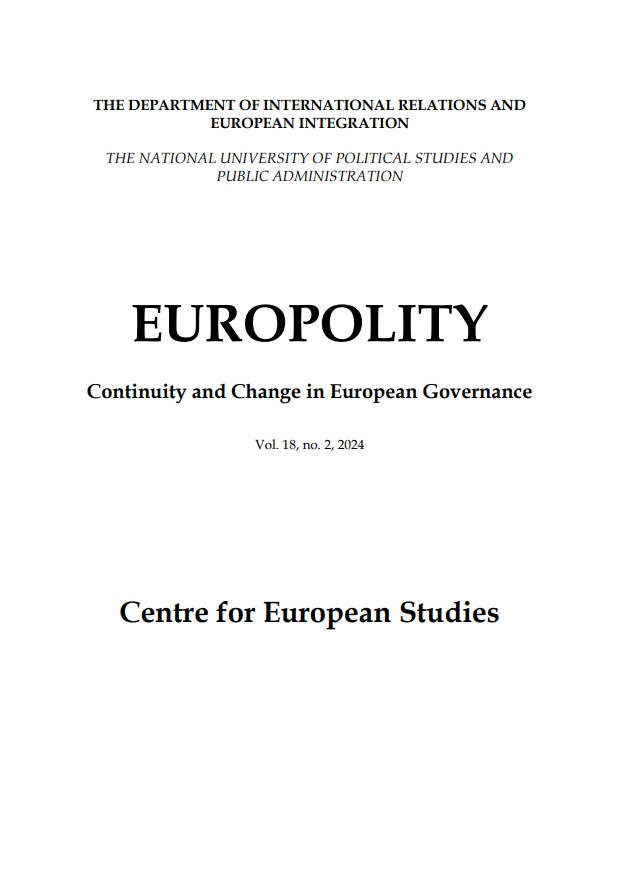PROPOSING A GOVERNANCE-RELATED COMPONENT
AND INDICATORS EVALUTION MATRIX TO ASSESSING
THE SOCIAL INCLUSIVENESS DIMENSION OF THE NEW
EUROPEAN BAUSHAUS PROEJCTS
PROPOSING A GOVERNANCE-RELATED COMPONENT
AND INDICATORS EVALUTION MATRIX TO ASSESSING
THE SOCIAL INCLUSIVENESS DIMENSION OF THE NEW
EUROPEAN BAUSHAUS PROEJCTS
Author(s): Eduardo MEDEIROS, Oto POTLUKASubject(s): Politics / Political Sciences, Politics, EU-Approach / EU-Accession / EU-Development, Geopolitics, Corruption - Transparency - Anti-Corruption
Published by: Scoala Nationala de Studii Politice si Administrative (SNSPA)
Keywords: Administrative capacity; hard governance; multilevel governance; participatory approaches; soft governance;
Summary/Abstract: Governance is the political facet of ‘inclusiveness’, one of the three main pillars of the New European Bauhaus (NEB) projects, alongside ‘aesthetics’ and ‘sustainability’. Governance is embodied by rules and norms and implemented through hard tools (laws, planning designs and strategies, funding schemes, etc.) and soft tools (ways of decision-making, targeting, capacity building, etc.) to implement sustainable goals effectively and democratically. In essence, the article presents a methodological proposal for assessing hard and soft governance elements of projects and policies, including elements such as spatial planning legislation, participatory approaches, multi-level governance, and administrative capacity frameworks. As a case study, the analysis is focused on the assessment of governance-related components and respective indicators of the NEB inclusiveness dimension. The proposed methodological approach resulted from more than a year of systematic research and consultation with existing literature and external experts on hard and soft governance. Expectedly, it can be applied to assess the influence and impact of governance-related processes in all sorts of projects and policies, as increasingly policymakers seek to assess their degree of positive impacts, effectiveness, and efficiency. The proposed methodological approach can be of use to a myriad of interested stakeholders and be associated with multi-disciplinary policy evaluation tools.
Journal: Europolity - Continuity and Change in European Governance
- Issue Year: 18/2024
- Issue No: 2
- Page Range: 113-132
- Page Count: 20
- Language: English

